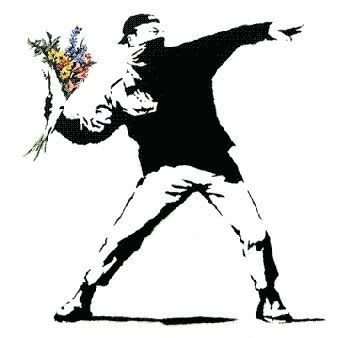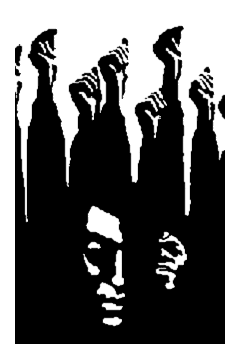The Fight for Ethnic Studies Beyond Heteropatriarchy and Male Privilege: a Call to Address & End Violence in all its Forms
Posted by digoguerra en enero 10, 2013
The Fight for Ethnic Studies Beyond Heteropatriarchy and Male Privilege: a Call to Address & End Violence in all its Forms
By Raúl Alcaraz Ochoa | Tucson, Arizona | http://www.antifronteras.com
10 January 2013
“Gender violence must be understood within larger systems of capitalism, settler colonialism, white supremacy, and heteropatriarchy… One of the major contradictions in political mobilization is that we often replicate the same hierarchical systems we claim to be dismantling. Gender violence is prevalent within progressive movements as it is in society at large.”
(Andrea Smith. “Introduction” The Revolution Starts at Home: Confronting Intimate Violence Within Activist Communities, pp. xiv-xv)
As Mexicano/Chicano born men, we come from a long legacy of beauty, but also one of colonization, gender violence, and resistance. As working-class brown cis-males (non-transgender men), we are oppressed through class and race, and those of us that identify as GBTQ (gay, bisexual, transgender, or queer), are oppressed through sexuality and gender as well. Within white supremacy, capitalism, and colonialism, we have been abused and victimized, and through male privilege, and the system of heteropatriarchy, we are perpetrators and abusers.
Heteropatriarchy (straight male supremacy) is all around us—in our personal/political lives. Whether it is in our homes and neighborhoods, and in movement-building in the struggle to defend Ethnic Studies, or to resist anti-migrant attacks such as SB 1070, (In)Secure Communities, or mass incarceration and the prison industrial complex, patriarchy and sexism are widespread.
As men we receive privilege from this system of oppression. The list of examples of privilege include (but are not limited to) our parents granting us more socializing freedom than our sisters and expecting less household chores, using offensive, demeaning or sexist language, employing street harassment and sexualized body language that objectifies others, dominating a meeting, group or effort and cutting off, questioning, or undermining female or LGBTQ leadership, using body language, damaging property, and raising voice to intimidate and assert power and control, battering or sexually assaulting the feminine-identified body—these are all are symptoms of a masculine & heterosexual-based system based on domination and aggression that gives masculinity (in its social, political, and cultural forms) power and privilege over anything not perceived as masculine.
One of the most prevalent manifestations of a heteropatriarchal system is the perpetuity of sexual violence. Historically, European colonizers used sexual violence as a primary tool of genocide. As Andrea Smith documents in Conquest: Sexual Violence & American Indian Genocide, “Colonizers have long tried to crush the spirit of the peoples they colonize and blunt their will to resist colonization. One of the most devastating weapons of conquest has been sexual violence.” To successfully rob indigenous lands and maintain the institution of slavery, gender and sexual violence was a central strategy of the colonizers and slave masters. From this (specifically gendered) systematic violence, the United States nation was born, and its legacy still felt and manifested today in interpersonal and internalized ways among oppressed groups.
Today, when gender violence takes place within activist/organizing communities of color, silence, denial, and organizational and community self-protection are common responses. We may feel that it is a personal matter that isn’t any of our business, or feel pressured to not “harm” the movement by “making it bigger and more public than it needs to be”. However, as Meiver De la Cruz & Carol Gomez write, adopting these stances is “where our movement breaks down and community accountability fails. Our silence and inaction give permission for violence to continue. We must then turn the mirror on ourselves and take a hard look at our own internalized oppressions that act as barriers to responding to domestic and sexual violence, and ask ourselves the tough questions:
· What is our collective responsibility to tackle this private and public conundrum?
· How do we hold ourselves and offenders in our circle accountable for abusive behavior?
· How do we unravel the emotional entanglements and ties that can either cloud or enhance our judgment?
· How do we take a stand?
· [How do we support the growth and transformation of both the survivor and perpetrator of violence?]
· How can communities prioritize domestic and sexual violence as an integral part of the social justice struggle?
· How do we move intimate violence from the private sphere and into the public light without feeling as if we are ‘betraying the cause’ or exposing our communities of color to dangerous public scrutiny and further oppression?” (1)
The truth is that the personal is political and the political is personal. In other words, home and the movement are one and the same. The foundation of our movimiento is both our personal relationships and our lived experiences and traumas. “The trauma we experience in private (whether at home or work) spills over into our community work, and often it either drives us or paralyzes us. [Therefore], it is impossible to respond to sexual violence, domestic violence, sexism, racism, homophobia, ableism, and classism as isolated entities.” (1)
It is critical that we connect gender violence to other forms of oppression. We speak out and rally to condemn the cultural and institutional violence of the white supremacy we face from the State of Arizona, but when it comes to addressing and holding ourselves accountable to instances of gender violence in our own families and community, we retreat to denial, avoidance, or explicit enabling. As long as our community is incapable or unwilling to address male privilege, gender violence, and heteropatriarchy, our movement will be one that lacks community accountability, is led by abusers and enablers, and has failed to respect, prioritize, or validate the experiences of women. We cannot fight for Ethnic Studies or Migrant Justice, and at the same time turn a blind eye to the struggle and experiences of our own mothers, grandmothers, aunties, sisters, comrades, and partners.
“This is not a depoliticized call to focus on personal self-development instead of building movements to dismantle white supremacy, capitalism, and imperialism… [for] our movements to be successful they must prefigure the societies we seek to build. Movements must dispense the idea that we can worry about gender violence ‘after the revolution’, because gender violence is a primary strategy for white supremacy, colonialism, and capitalism. Heteropatriarchy is the logic by which all other forms of social hierarchy become naturalized. The same logic underlying the belief that men should dominate women on the basis of biology (a logic that presupposes a gender binary system) underlies the belief that the elites of a society naturally dominate everyone else. Those who are having an interest in dismantling settler colonialism, white supremacy, and capitalism must by necessity have a stake in dismantling heteropatriarchy.” (2)
To conclude, I encourage our community to create a safe and open space to consider the following questions:
1. What would a movement against white supremacy, heteropatriarchy, colonialism, and imperialism look like, centered around a gender and LGBTQ consciousness?
2. How do we employ a community strategy to address violence abuse or harm that creates safety, justice, reparations and healing, without relying on police, prisons, criminal justice courts, childhood protective services, or any other state systems?
3. How do we put at the center the experiences of both the individuals and communities involved, and the larger social conditions at work? How do we support both the personal growth of the survivor and perpetrator and at the same time make strides towards community and political transformation?
This is a callout to respect and believe the voices and experiences of survivors of gender violence.
This is a callout to stand in solidarity with women, children, and LGBTQ people by challenging our own male privilege and the system of heteropatriarchy.
This is a callout to make it clear that we do not accept, perpetuate, or enable domestic or sexual violence.
This is a callout to find solutions and processes in community accountability and transformative justice models.
This is a callout to trusting that survivors of gender violence know best, and that others (especially men) not try to guide their process of healing and guide women’s process of liberation, and that men follow the guidance of women in this struggle.
This is a callout to build healthy communities and movements that are safe, empowering, and liberatory for women, children, and LGBTQ people, because if we struggle from below and center our movimiento on those most oppressed, only then do we fight for true liberation for all. Only then will a revolution be truly for everyone.
Just as the Ethnic Studies Movement of Tucson, Arizona demands an end to cultural genocide and violence, this too is a callout, essentially, to address and seek to end violence in all its forms and manifestations. There should be nothing revolutionary or mind-blowing about a revolution that includes and humanizes us all.
Sources:
(1) Meiver De la Cruz & Carol Gomez. “Ending Oppression. Building Solidarity. Creating Community Solutions.” The Revolution Starts at Home: Confronting Intimate Violence Within Activist Communities, pp. 27-28.
(2) Andrea Smith. “Introduction” The Revolution Starts at Home: Confronting Intimate Violence Within Activist Communities, pp. xv



Angelica said
Thank you for highlighting the importance of gender justice even within movements that so search for justice. Too often, during revolutions, the revolutionaries tend to focus much more on the kind of justice that they seek while ignoring the just treatment of those within their own ranks. What most intrigued me about this piece is your challenge to find community-based solutions and strategies that do not need the intervention of the state. I would love hearing more about this approach. Do you know of any strategies that you find particularly useful?